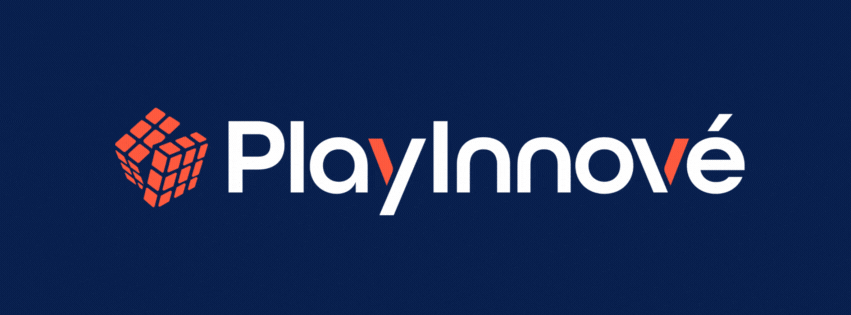AI's Dual Impact on Jobs: Replacement and Creation
- PlayInnové

- Jun 18, 2024
- 3 min read

Artificial Intelligence (AI) is a transformative force in the modern workforce, reshaping industries, automating tasks, and altering the job landscape. While there is an understandable concern about AI replacing jobs, it is equally important to recognize that AI is also creating new opportunities. The key for employees navigating this evolving job market lies in adapting and acquiring new skills relevant to the future of work.
The Replacement of Jobs by AI
AI's ability to perform tasks more efficiently and accurately than humans is leading to job displacement, particularly in sectors involving routine and repetitive tasks. For instance, manufacturing, data entry, and customer service roles are increasingly automated. According to a report by the McKinsey Global Institute, up to 800 million jobs could be lost to automation by 2030, affecting about one-fifth of the global workforce (SEO.ai)
Industries heavily reliant on manual labor or data processing are seeing the most significant impact. In manufacturing, AI-powered robots can assemble products faster and with greater precision. In customer service, chatbots and virtual assistants are handling inquiries that previously required human intervention. These changes underscore the need for workers in these sectors to adapt or face obsolescence.
The Creation of New Jobs by AI
Conversely, AI is also a catalyst for job creation, particularly in technology development, maintenance, and oversight. New roles are emerging in AI development, data analysis, cybersecurity, and AI ethics. These jobs require a combination of technical skills and domain-specific knowledge, creating a demand for a more skilled workforce.
The World Economic Forum's 2023 Future of Jobs Report highlights that AI will create about 97 million new jobs by 2025, counterbalancing the 85 million jobs that will be displaced (SEO.ai) (National University). This surge includes positions such as data scientists, AI specialists, and digital transformation experts. Moreover, industries like healthcare are seeing new roles aimed at integrating AI into patient care and medical research, enhancing service delivery and innovation.
Essential Skills for the Future Workforce
As AI reshapes the job market, certain skills become indispensable for employees aiming to remain competitive:
Complex Problem Solving: AI can handle routine tasks, but human creativity and complex problem-solving capabilities remain irreplaceable. Employees need to develop skills in critical thinking and innovative problem-solving to tackle challenges that AI cannot address.
Digital Literacy and Technical Skills: Proficiency in AI, machine learning, and data analytics is critical. Understanding how to leverage AI tools and interpret data-driven insights will be foundational for many roles.
Adaptability and Lifelong Learning: The rapid pace of technological advancement necessitates continuous learning and adaptability. Employees must be willing to upskill and reskill regularly to stay relevant.
Interpersonal and Communication Skills: As AI takes over technical tasks, human-centric skills like empathy, communication, and teamwork become more valuable. These skills are crucial for roles in management, customer relations, and collaborative projects.
Ethical and Responsible AI Use: With the integration of AI, understanding ethical considerations and ensuring responsible AI use is paramount. Knowledge in AI ethics, privacy, and compliance will be essential for developing and implementing AI solutions.
The 2023 Future of Jobs Report by the World Economic Forum emphasizes the growing importance of social and emotional skills alongside technical proficiency. It identifies critical thinking, problem-solving, self-management, and working with people as key skills for the future. Furthermore, the report highlights the rising demand for green jobs and roles in the care economy, underlining the need for a workforce adept at addressing environmental and social challenges (SEO.ai).
AI's dual impact on the job market—both as a disruptor and a creator—presents a significant shift in how we approach work. While certain jobs are at risk of being replaced, the emergence of new roles offers opportunities for those equipped with the right skills. Employees must embrace continuous learning and adaptability to thrive in this AI-driven future, focusing on technical proficiency, problem-solving, interpersonal skills, and ethical considerations.
By understanding and preparing for these changes, the workforce can harness the potential of AI to enhance productivity, foster innovation, and create a more dynamic job market.
References
McKinsey Global Institute. (2017). "Jobs lost, jobs gained: Workforce transitions in a time of automation." Retrieved from McKinsey.
World Economic Forum. (2023). "Future of Jobs Report 2023: Key Insights." Retrieved from WEF.
National University. (2024). "131 AI Statistics and Trends for 2024." Retrieved from NU.
SEO.ai. (2024). "AI Replacing Jobs Statistics: The Impact on Employment in 2024." Retrieved from SEO.ai.




Comments